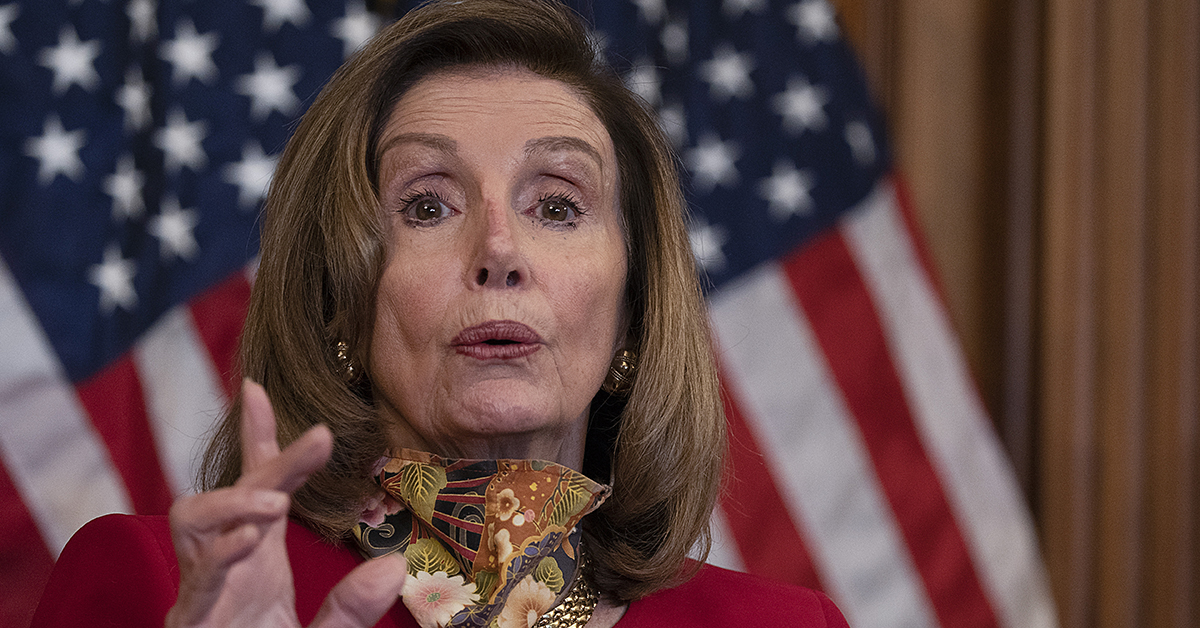OPINION: This article may contain commentary which reflects the author's opinion.
House Speaker and California Rep. Nancy Pelosi has snuck a tax exemption into Joe Biden’s Build Back Better legislation and who it helps is extremely telling.
In a move that is set to cost taxpayers $1.6 billion, the Democrats, led by Pelosi, have given a $50,000 per journalist tax credit to news organizations, The Washington Times reported.
A new analysis of the legislation by the Joint Committee on Taxation, a special congressional panel made up of 10 senior lawmakers from both chambers of Congress, found that taxpayers would be on the hook for more than $1.6 billion if the tax credit becomes law.
The credit would allow “local news” outlets to receive a quarterly tax credit, “equal to 50%” of a journalist’s wages up to a cap of $12,500-per-quarter.
Overall, eligible outlets could receive as much as $50,000 annually per journalist in tax breaks through the program in its first year. In subsequent years, the credit would drop to 30% of a journalist’s wages per quarter. Democrats propose to let the tax credit expire after five years unless Congress votes to renew.
Republicans say that it amounts to a giveaway to the “mainstream news media.” They also argue it would create an improper relationship between the federal government and the nation’s leading media outlets, which could be exploited for propaganda purposes.
It is a wonder that Democrats, who arguably receive the most favorable coverage from mainstream news organizations, would want to give this kind of tax break to them.
“Not only is this proposal a grotesque waste of taxpayer money,” Wisconsin Sen. Ron Johnson said. “it would be a dangerous precedent of government collusion with the media. Biden’s collusion with the press has already caused enough damage to freedom of speech and freedom of the press.”
“Freedom of the press does not contemplate government funding of it,” he said.
The story received renewed attention on Wednesday when author and columnist Phil Kerpen shared the exemption Twitter.
“Pelosi’s latest version of the Biden Budget Buster exempts news organizations with up to 1,500 employees from the employer side of the payroll tax,” he said.
https://twitter.com/kerpen/status/1456089906418180100?s=20
The language of the exemption says that any “local newspaper publisher” that serves “the needs of a regional or local community and who employs no more than 750 employees” is eligible.
Democrats have defended the exemption saying that local newspapers have seen a decrease in ad revenue and need the assistance.
“Local journalism is a bedrock pillar of communities across the United States,” Arizona Democrat Rep. Anne Kirkpatrick, who help to author the exemption and has attempted to introduce bills like this previously, said. “Unfortunately, journalistic endeavors throughout the country face major economic struggles that put the future of many publications in serious jeopardy.”
“It’s a relatively inexpensive proposal — less than 0.1% of the total legislation — but it is the only provision before Congress that addresses the disinformation and misinformation now threatening to destroy our democracy,” The Lenfest Institute for Journalism CEO Jim Friedlich, said in a piece for The Philadelphia Inquirer.
“Absent a strong press, local news deserts are being filled by harmful disinformation, partisan hyperbole, and unverified, often bogus, social media posts. Without accurate, independent news and information, families cannot make informed decisions about their health or education, communities cannot hold government accountable, and democracy itself comes under dire threat,” he said.
University of Oregon School of Journalism Dean Juan-Carlos Molleda also argued that the tax credit is needed.
“This is essential because local news is collapsing around the country. Because the internet has destroyed local news business models, there has been a 60% drop in the number of reporters since 2000. Thousands of communities have no newspapers or ‘ghost newspapers’ that barely cover communities,” he said.
